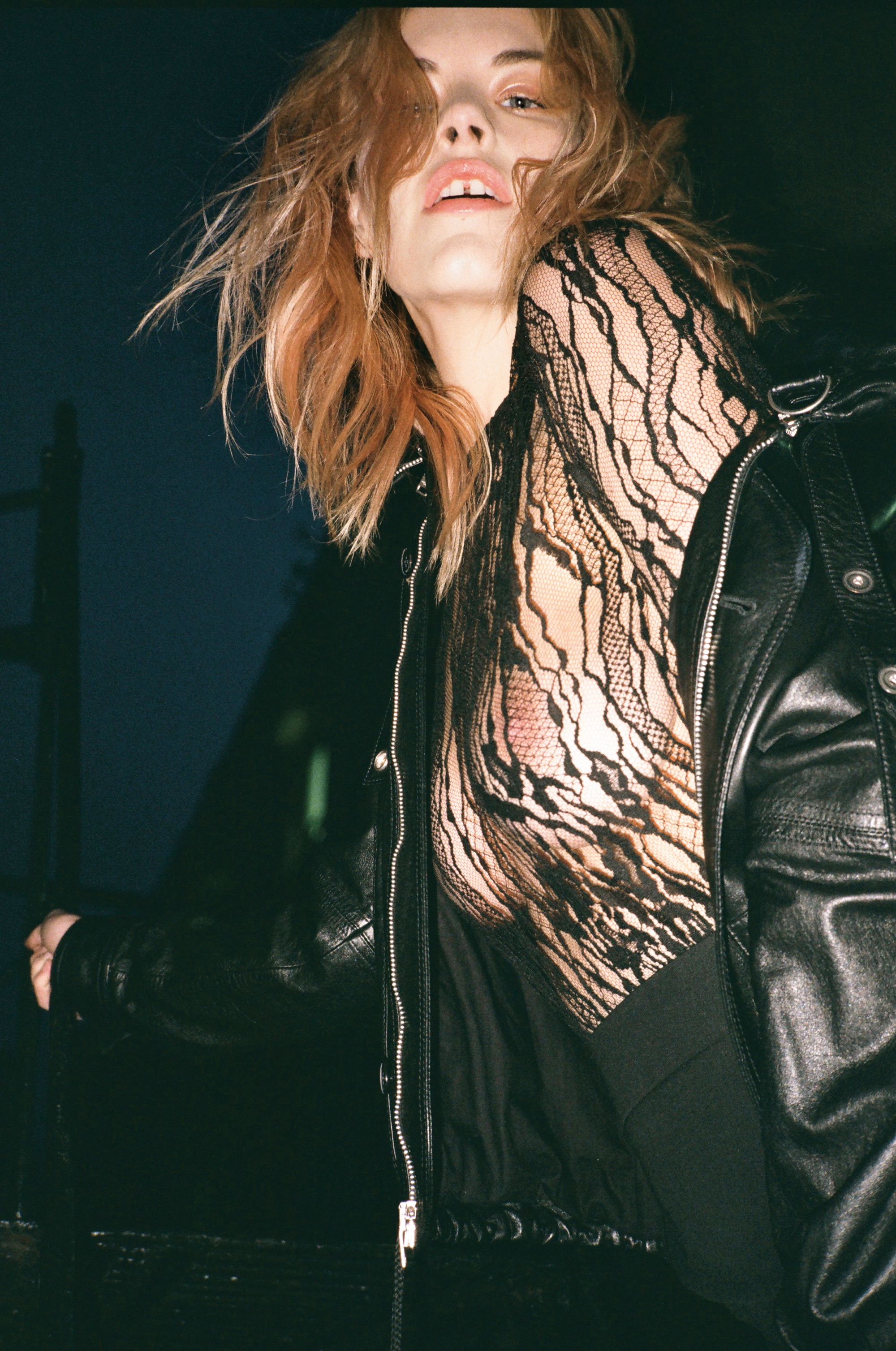Purple Magazine
— S/S 2017 issue 27
No Agency
no agency
interview with ASHLEY SMITH and ALEX TSEBELIS
by CAROLINE GAIMARI
portraits by ANGELA BALTRA
styling by MASHA ORLOV
 Ashley wears a leather jacket over an animal lace top tucked into a wool skirt SAINT LAURENT BY ANTHONY VACCARELLO
Ashley wears a leather jacket over an animal lace top tucked into a wool skirt SAINT LAURENT BY ANTHONY VACCARELLO
 Daniela wears a green cotton crepe long dress EMPORIO ARMANI
Daniela wears a green cotton crepe long dress EMPORIO ARMANI
CAROLINE GAIMARI — How did you decide to start the agency?
ASHLEY SMITH — About a year ago, Alex and I were having a boozy lunch together to celebrate the end of Fashion Week. Around the same time, I had sent my friend Vera Lesavoy — who is now one of our girls — to agencies because she’s gorgeous. She has the height ; she has the right measurements, but has a slightly bigger hip. I didn’t think it was a problem — she is just beautiful. She called me…